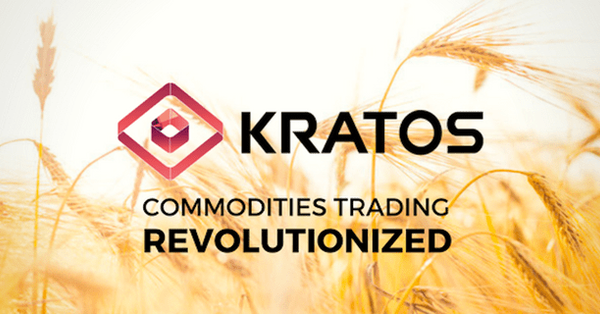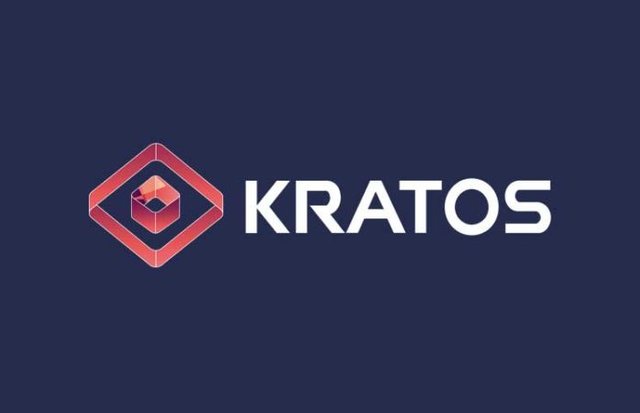

Commerce is an important aspect of the world's economy. Through trade transactions, scarce and needed items of value are transferred from one party to another in return for something else of equal value, mostly money. One of the biggest arm of commerce today is commodities trading, which, as the name implies, involves the buying and selling of tangible articles and products. Everywhere across the globe, people buy physical commodities that are considered basic needs for the home, for personal use and for the family. From little items such as toothbrushes to footwears and TV sets, the supply chain industry for tangible products has proven to be substantial to the growth and development of civilization.
However, the supply chain includes numerous challenges ranging from the almost inexistent means for SMEs and businesses to secure fundings for active participation in trades, to the long and tedious process in between producer-companies and the end consumers. One that is often filled with distrust, ineffectiveness, damage of valued commodities, and non-transparency.
That said, perhaps one of the biggest problems of commerce is quality control for physical commodities. Digital commodities are after all, digital, and they are rarely affected in terms of quality. But the prevalence of fake commodities in the market has led to addition caution and introduces a level of hostility between trade partners and producer-companies. This has prompted commodity manufacturers to seek means of protecting their brand name and their market share in a number of ways including;
- Employing technological means to help end consumers verify authenticity.
- Employing the services of 'trusted' trade firms and intermediaries to oversee the transactions.
These methods, of course, while being effective in a minimum sense, includes and adds to the company's exorbitant operational costs and further contributes to the inefficiencies and complications in the supply chain.
First off, the involvement of trade intermediaries impedes on the flow, speed and efficiency of trades between the direct manufacturers and the consumers because they often engage in quality and quantity checks. It also introduces an unnecessary level of trust. And if human behaviour is any indication, just how much can the middlemen be trusted?
The industry's acute reliance on signed paper documents leaves a wide gap in terms of transparency, accuracy and exactness of the detail. This is because paper contracts and documents as a model for logistics are easy to duplicate, manoeuvre and falsify. Thus, paving the way for the existence of corrupt actors as trade intermediaries to make large chunks of profits by introducing additional costs on the items. They could even tamper with the quantity/quality of the items themselves without the knowledge of the producers. The resulting effect is that it rids the industry of transparency, wastes valuable time, decreases product life cycle, and increases the cost of the commodities for the end consumers.

Meet KRATOS


KRATOS is a blockchain-based peer-to-peer trading platform for physical commodities. The platform addresses challenges encountered in the physical commodities trading business, in particular, the lack of access to trade finance for Small to Medium Enterprises (SME) players in the commodities.
The project is built and developed as a flagship product on the Ethereum blockchain by ARKRATOS Pte Ltd, a blockchain solutions company founded in Singapore in 2017, with Director Mark Fung Yun pulling the reins. The company boasts of a diverse pool of expert employees with years of experience across sectors including Insurance, Web development, E-Governance, Banking & Finance, Healthcare, Education, Sustainability & Traceability, etc.
The KRATOS platform will utilize blockchain technology to ensure a high degree of transparency, efficiency and significantly lower the costs and complexities involved in the trade of physical commodities.
It will be able to achieve these features by building a peer to peer blockchain network infrastructure to store transparent and immutable data for individual buyers and sellers, consumers and producers.

Also, every local and international transaction of physical commodities using the platform will adopt the digitization of trade documents and contracts instead of paper-based ones. These digital documents will be guided by self-validating smart contracts to remove the need for trusted intermediaries and reduce the influence of corrupt actors. By relegating the industry's dependence on paper documents for validation, money is saved, deliveries are timely and effectively done in assured quality conditions too.
The platform's tokens (KTOS) is ERC-20 based and will be used as a utility on the platform. KTOS will enforce transparency of transactions by guarding against double spending, funds mismanagement, and duplication of transactions on the blockchain.
KRATOS will also offer the ability for manufacturers using the service to trace the goods and products from the point of origin to the point of final delivery. This concept helps protect buyers and sellers, traders, banks, insurance agents, and shippers from the type of fraud & systemic abuse previously seen in the international commodity trading processes.
KRATOS will be compliant with the various state and federal laws guiding international trading in various regions across the globe. Thus, as part of its high-security requirements, the identities of participants will be collected and verified using the popular KYC/AML verification processes. This would further serve to foster mutual trust and reliability of involved parties.

Announcing 1 Million KTOS Giveaway on Trade.io.
The KTOS token has been officially listed on a Hong Kong-based cryptocurrency exchange Trade.io, and the company has partnered with the trading giants to host a massive trade-and-win competition and airdrop giveaway on the platform.
According to the announcement tweet on Trade.io's official Twitter handle, 100 lucky traders will be awarded 1 Million KTOS tokens worth about $130,000, according to trading volume done with any of the listed KTOS trade pairs on the exchange.
The event started on the 22nd of January and will end on the 1st February (totalling 10 days).
For further information about the giveaway competition, see the link official announcement on Trade.io's Website here as well as other information provided in the links below.